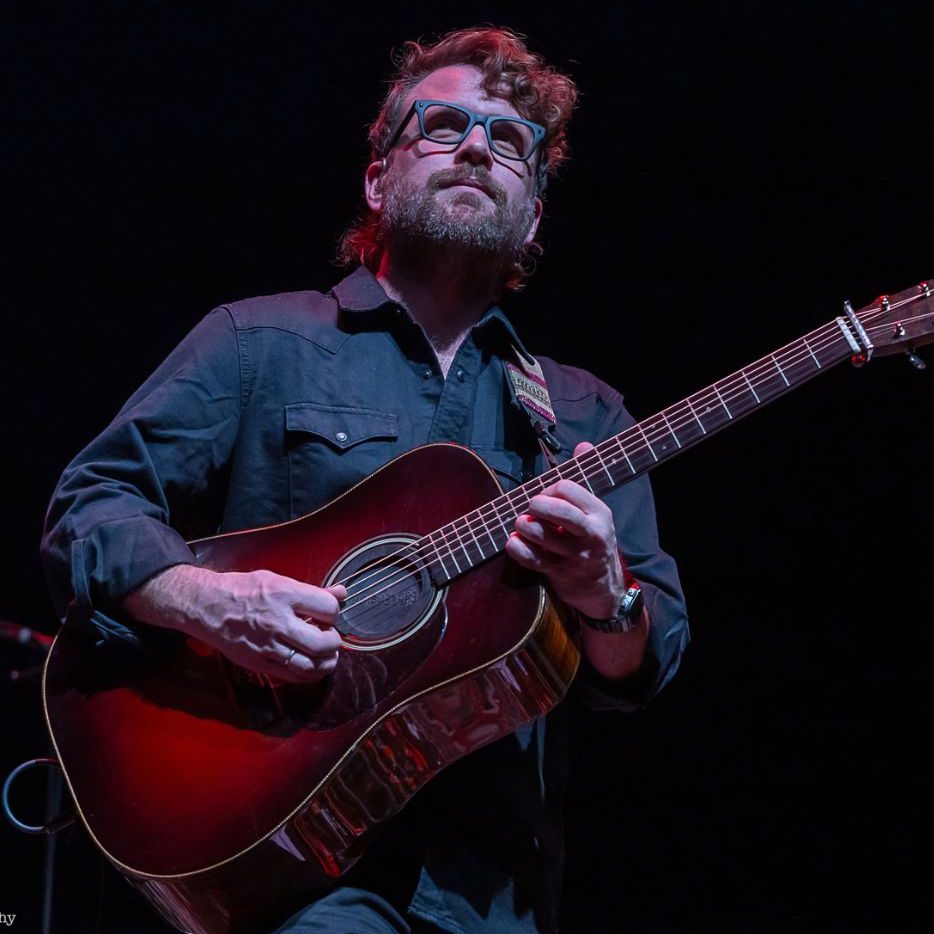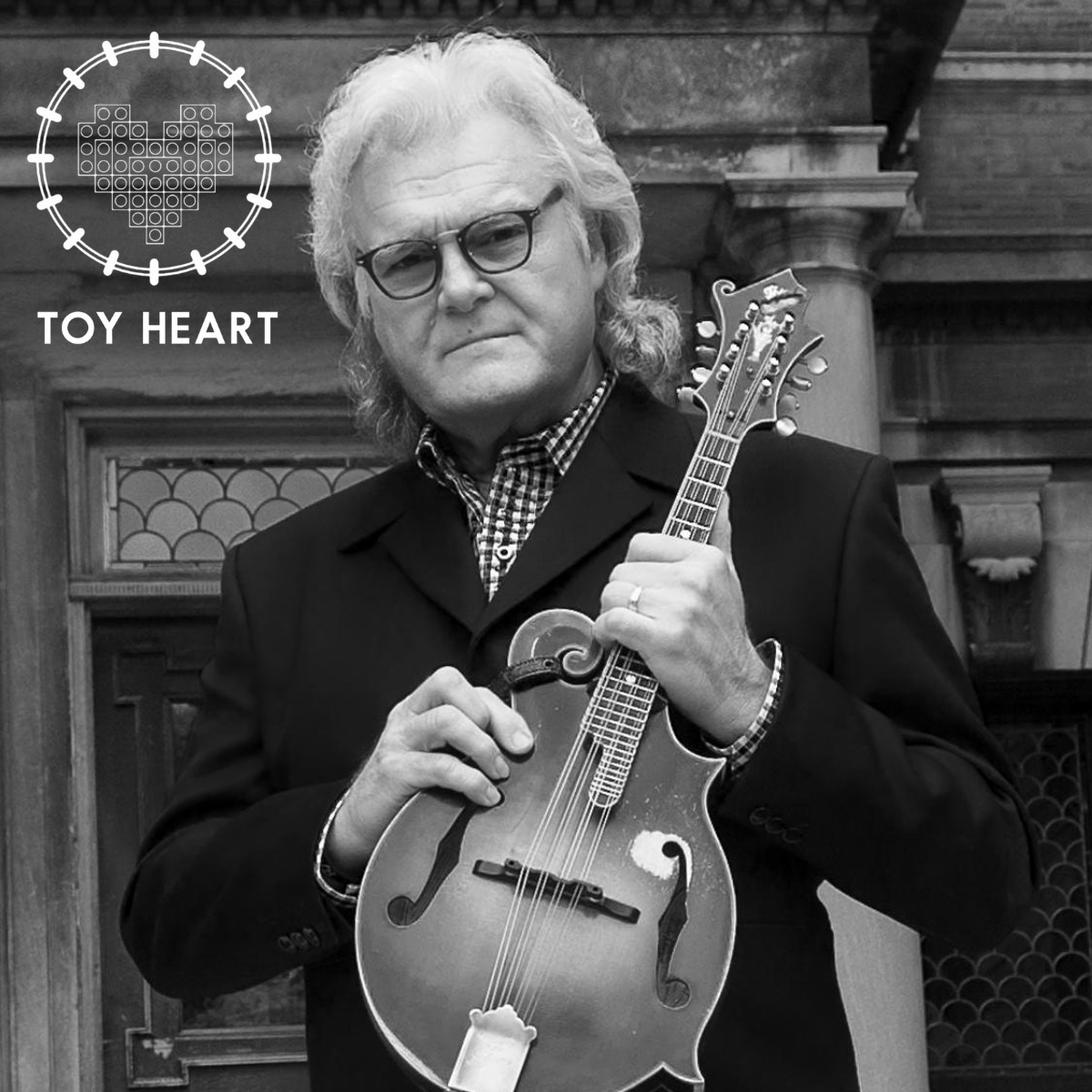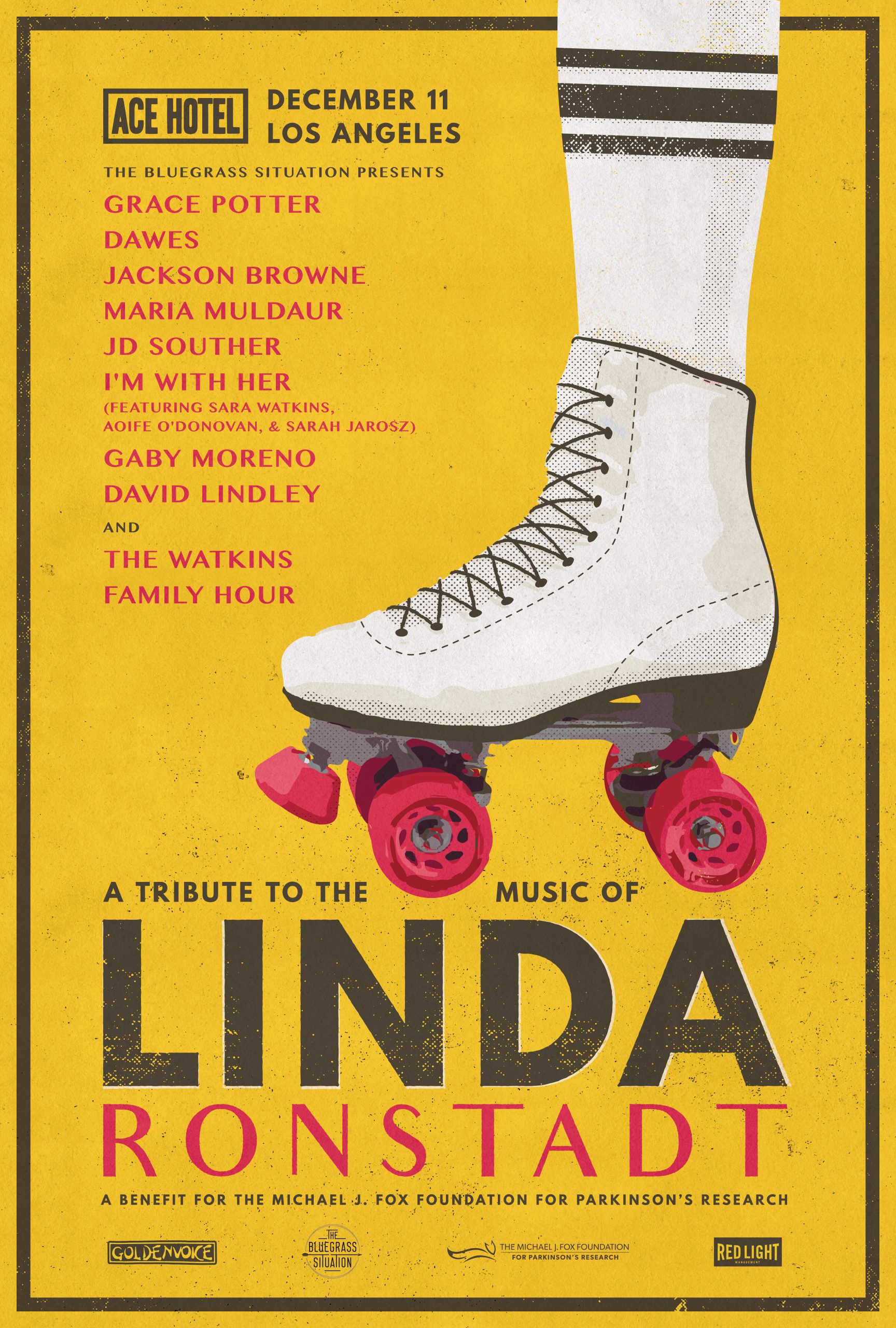Any given year is damn well over-run with great music — far too much for any one list to encompass. So, for our year-end songs round up, the BGS writers each picked tunes they loved that were not on any of our year-end albums. Maybe we loved the whole record; maybe we didn't. But we sure do love these tunes.
Aaron Lee Tasjan, Silver Tears, "Little Movies"
Aaron Lee Tasjan has a long, varied resumé. A founding member of glam-rock band Semi Precious Weapons and an ex-guitarist for the New York Dolls, Tasjan is now making some of the most interesting country music currently coming out of Nashville. Silver Tears track "Little Movies" is a perfect little slice of what Tasjan has to offer: soaring harmonies, unorthodox arrangements, and smart, compelling songwriting. — Brittney McKenna
Adia Victoria, Beyond the Bloodhounds, “Stuck in the South”
“I don’t know nothing ‘bout Southern belles, but I can tell you something ‘bout Southern hell,” Adia Victoria exclaims on this swampy burner that anchors her debut album, Beyond the Bloodhounds. Giving form to her experience as a Black woman raised in the Seventh Day Adventist Church in the South, she tackles the complexities of southern identity with equal parts grace and grit. Her arresting vocals and hypnotizing guitar make for a sound that’s unapologetically haunting: It’ll stick with you long after the final notes ring out. — Desiré Moses
Andy Shauf, The Party, "Quite Like You"
If Andy Shauf’s The Party is the overarching Saturday night hang, this intensely rhythmic song details a corner of the party through a story of being friend-zoned. We’ve all been there, and you can hear the vulnerability in Shauf’s voice as he lays it out, atop distorted piano riffs. — Josephine Wood
Beyoncé featuring the Dixie Chicks, "Daddy Lessons"
One of the only bright moments in the absolute garbage fire of a year that has been 2016 was the "surprise" performance of "Daddy Lessons" from Beyoncé and the Dixie Chicks at the 50th annual CMA Awards. To some, it may have seemed like an unexpected pairing, but given both the Dixie Chicks' reverence for the twangy Lemonade track (they performed it on their 2016 world tour), the Texas connection, and the two artists' shared histories as "controversial" figures, it shouldn't have been. Less surprising than the performance itself was the new controversy that quickly followed — a coded "Was that really country?" debate that, in some ways, mirrored the troubling dialogue occurring around the soon-to-be-determined presidential election. The performance was a victory for diversity on a stage that greatly needed it, as well as the best "fuck you" to the industry that unceremoniously excommunicated them over a decade prior that the Dixie Chicks, who were invited to perform at the insistence of Queen Bey herself, could have possibly imagined. — BMc
Dori Freeman, Dori Freeman, “You Say”
To call Freeman’s “You Say” simple would do a disservice to the intricacies she weaves with her lyricism and arrangement. Quiet, yes; simple, no. The higher register that marks her vocals on the verses dips down into growling pain on the chorus. “Darling I can’t stop thinking of you/ Like a dog in the hot night, I’m howling for you,” Freeman sings, her pronunciation striking the consonants of “darling” and “dog” in affective ways that create an expansive longing. — Amanda Wicks
Dylan LeBlanc, Cautionary Tale, "Easy Way Out"
Honestly, there's a case to be made for every one of the 10 tunes on this Dylan LeBlanc record to be cited for its greatness. They are all just that finely crafted and fantastically rendered. On this cut, he turns his very pointed gaze inward to explore his own struggles with depression and addiction. "Thorazine dreams are thundering in dangerous weather where, in my head, I'll soon be dead or soon feeling better." Having come out the on the latter side of that equation, LeBlanc knows of what he speaks (and sings) in regard to cautionary tales. — Kelly McCartney
Hamilton Leithauser + Rostam, I Had a Dream That You Were Mine, "Peaceful Morning"
Former Vampire Weekend multi-instrumentalist Rostam Batmanglij and the Walkmen's Hamilton Leithauser seem, on paper, like two of the unlikeliest musicians to make a thoughtful folk-rock album, but that's exactly what they've done with I Had a Dream That You Were Mine, their debut album as a duo. Standout track "Peaceful Morning" opens with a gentle banjo over an acoustic drum kit and simple piano chords, before opening with a lyric ("I thought I heard the angels, Lord") that could have been plucked right out of a bluegrass song. The song, like the album, is unlike anything else released this year, a vital piece of work from supposed outsiders breathing new life into the increasingly exhausted genre that is Americana. — BMc
Hayes Carll, Lovers & Leavers, "The Love That We Need"
Hayes Carll's dissection of a marriage that slowly falls from passion to plain is the exact opposite of a manufactured Music Row truck song — it may not be manly to admit that (gasp!) men and women both crave stability and partnership to a fault, but it works as a perfect confession on "The Love That We Need." Most love songs paint romance as ending with a dramatic bang, but Carll knows that the metaphor of two lovers, side by side in bed with bodies that never touch, is one that hits most of us where it hurts. It's a moment to help realize that the pain of letting go is better than the paralysis of holding on to something broken. — Marissa Moss
Jonny Fritz, Sweet Creep, "Stadium Inn"
Is there anyone out there with an imagination like Jonny Fritz? You can point out the humor and weird wit in Sweep Creep's songs all you want, but perhaps Fritz's most notable talent is the wild ways he's able to warp his mind to tell stories using building blocks no one else would ever think of or see scenarios that would take anyone else a handful of magic mushrooms to ever access. Case in point: "Stadium Inn," which imagines life beyond the mysteriously stained, always-open drapes of a seedy Nashville motel, set to a honky-tonk-meets-"Superstition" vamp and spatters of down-on the-farm fiddle. Horney honeymooners, hookers, and philandering husbands: It's all here for the taking. And no one serves it up like Fritz. — MM
Joseph, I'm Alone, No You're Not, “White Flag”
You could cherry pick a few songs from Joseph’s full-length debut and manage to come away confused about their designation as roots music. But catch this trio of sisters from Portland, Oregon, performing together on a stage, and you’ll see the rich folk tradition that inspired the bulk of their harmony-driven catalog. “White Flag” is Joseph drawing from the best of both worlds: a rhythmic, chant-like intro, crisp lyrics, strong vocal harmonies, and an upbeat chorus that will seep into your brain and refuse to leave. With its accessible sound and traditional roots, “White Flag” is the perfect gateway song — drawing pop fans into more authentic, traditional sounds and, likewise, bringing traditionalists out of their comfort zones. — Dacey Orr
Levon Henry, Sinker, "Skin of the Lion"
Upon pressing play, you’ll be in an instantly altered state of mind, as Levon Henry sings about releasing a tiger with the song building a musical haze from there. Henry’s sultry vocals combine with repetitive guitar riffs and distorted vocals to create a jazzed-up Tame Impala-esque sound. — JW
Lewis & Leigh, Ghost, "The 4:19"
Some duos sound superfluous — like a person adorned in one too many pieces of jewelry — and others fit together so intensely that it's impossible to imagine on without the other. The latter is the case with Lewis & Leigh's harmonies on their debut LP, Ghost, that always sound like a casual conversation within a complex psyche. It's at its best on tracks like "The 4:19" which is, in some ways, more Elliot Smith than Civil Wars, a work of languorous beauty about finding a place to belong when we're always in motion in the exact opposite direction of our expectations. — MM
LP, Death Valley, "Muddy Waters" & "Lost on You"
These two fantastic tracks tether LP's Death Valley EP to a rootsier sound than she employed on her last record and, MAN, do they do it right. The purposely plodding groove of "Muddy Waters" evokes exactly what it's meant to: a defiant, burdened body slogging through an emotional swamp … but slogging through nonetheless. The wispier cowboy swagger of "Lost on You" — replete with a cattle rustler's whistle — lightens things up, but still stands brazenly indignant in response to a broken heart. — KMc
Lucy Dacus, No Burden, “Troublemaker Doppelganger”
The second track on Lucy Dacus’s debut album (which bears the sharpness of a veteran work) is a bluesy jaunt that deals in dualities. “Is that a hearse or a limousine?” the Virginia native asks in the opening line before declaring, “I saw a girl that looked like you, and I wanted to tell everyone to run away from her.” Expanding beneath Dacus’s honey-dipped vocals is a propulsive riff brimming with so much swagger that you can’t help but nod along. — DM
Mandolin Orange, Blindfaller, “Take This Heart of Gold”
“Take This Heart of Gold” is a pledge — the kind of assurance lovers offer one another when they see that settling down isn’t settling. An electric guitar offers a shimmery rumination to start, and that contemplation only grows with Andrew Marlin’s staid vocals. The focus, as always with this duo, is the harmonies. Emily Frantz’s voice adds a punctuating note on the verses and swells with Marlin’s on the chorus. It’s soft and sweet without the daydream of idealism. This is reality shining through. — AW
Marisa Anderson, Into the Light, "He Is Without His Guns"
While it was a bad year for just about everything else, 2016 was a great year for guitar players. Everyone from William Tyler and Ryley Walker to Bryan Sutton and Billy Strings released strong albums that reinforced the instrument’s place at the forefront of roots music. Arguably the best and most wide-ranging was Marisa Anderson’s Into the Light, which she described as the soundtrack to a sci-fi Western. If that’s the case, then “He Is Without His Guns” scores the high-noon showdown between gunslingers, evoking the dusty ambience of Ennio Morricone and Wild West grandeur of John Ford. — Stephen Deusner
Michael Kiwanuka, Love & Hate, "Black Man in a White World"
Soul singer Michael Kiwanuka brings his rightful lineage and legacy to bear on this standout track from his fantastic Love & Hate LP. Propulsed by hand claps, the song lays out in stark emotional relief the toil it takes walking through the white world as a Black man with lines like "I'm in love, but I'm still sad. I've found peace, but I'm not glad." That's because even the small wins come with far too many losses for people of color. Even so, Kiwanuka takes the wind righout out of the clichéd sails of the "angry Black man" trope by proclaiming, "I've lost everything I had and I'm not angry and I'm not mad." Clear eyes, full heart, can't lose. — KMc
Miranda Lambert, The Weight of These Wings, "Pushin' Time"
A lot of the songs on Miranda Lambert's The Weight of These Wings are only partially and/or questionably autobiographical. This tune, though, is one that fully, unflinchingly is, as it details the beginnings of her relationship with Anderson East (who lends captivatingly tender harmony vocals to the track). It's one of the most beautiful love songs of the year, mostly because it never crosses the line into overly dreamy sentimentality, choosing rather to stay grounded in its appropriately hopeful romanticism. Who doesn't resonate with a line like "I didn't know I could be kissed like that," if not in experience then, at the very least, in expectation? This song is what dreams are made of. And, sometimes, it seems, those dreams really do come true. — KMc
The Raconteurs, Jack White Acoustic Recordings 1998 – 2016, “Carolina Drama (Acoustic Mix)”
This iteration of the Raconteurs’ “Carolina Drama” is a stripped-down, eerie acoustic murder ballad on string-infused steroids, with the guitar more twangy, strings more prominent, and drums notably missing. — JW
Robert Ellis, Robert Ellis, “California”
“California” begins tranquilly enough, with Robert Ellis softly plucking electric guitar and crooning in his juke joint style. But, by the chorus, the whole thing damn near explodes into the kind of haughty indifference one feigns after a breakup. “Maybe I’ll move to California with the unbroken part of heart I still have left,” he sings of the main character’s decision to leave behind shattered promises. The drums enter the conversation at the chorus as pounding echoes and the guitar’s pacing becomes more frantic. Ellis has mined the California hills and discovered gold. — AW
Shirley Collins, Lodestar, "Awake Awake / The Split Ash Tree/ May Carol / Southover"
On her first album in nearly 40 years, Shirley Collins reintroduces herself with this 11-minute medley of traditional tunes that may date back centuries but still feel startling, unnervingly current. “Awake Awake” was originally written in the late 1500s, but it could have been a response to Brexit, shaming a nation for its hubris. “May Carol,” on the other hand, hopes for a better future for us all. That’s what makes Lodestar the comeback of the year: It reveals an artist who loses herself humbly in her songs, allowing history to speak to the present. — SD
Shovels & Rope, Little Seeds, “Buffalo Nickel”
Shovels & Rope are the rowdiest and, arguably, most adventurous roots band around, capable of clangorous punk conflagration, as well as gentle country musings about life and loss. “Buffalo Nickel” is most definitely the former. The song crashes through a brick wall, opening with a pummeling drumbeat and a barbed guitar riff, like a shotgun wedding of “Be My Baby” and “99 Problems.” But even when they’re trying to “shake the noise out of the rattle,” Michael Trent and Cary Ann Hearst are disarmingly candid about the nature of their collaboration, both musically and romantically, and this boisterous song paints them as bandits on the run, a folk-punk Bonnie & Clyde, playing each note like they’re pulling a Brinks heist. — SD
Sierra Hull, Weighted Mind, “Black River”
Weighted Mind is far from the first time bluegrass fans are hearing from mandolin savant Sierra Hull, but the January full-length from the 25-year-old finds her more confident in her own voice than ever before. “Black River” takes the thick, messy mascara tears familiar to plenty of 20-somethings and transforms them to the stuff of poetry. “A thousand years is but a day, they say. And maybe in a thousand more I will find my way,” she sings at the close of the chorus. One can only hope she will continue to chronicle every step with the honesty and musical integrity of Weighted Mind. — DO
Wilco, Schmilco, “Normal American Kids”
The opening track of Wilco’s 10th album, Schmilco, has all the makings of an instant classic. In this anthem for misfits, Jeff Tweedy quietly croons about his days as a teenage stoner who “always hated those normal American kids” over low-strummed guitar. At a time when the definition of what it means to be American is just as elastic as the definition of “normal,” Tweedy questions it all using wholly American songwriting tropes: malaise, rebellion, and nostalgia. — DM
The Wild Reeds, Best Wishes, “What I Had In Mind”
It’s one thing to have a bandleader with a killer voice. It’s another to have members in the group capable of backing that one standout singer with precise harmonies. But what happens when you have three singers capable of taking the lead? Look no further than Los Angeles band the Wild Reeds for the answer to that question. On “What I Had in Mind,” a gut-wrencher from this year’s three-song release Best Wishes, things start out low-key enough: steady strumming behind a lone, sweet vocal. But, by three minutes into the song, these robust three-part harmonies will have successfully worked even the most stoic listeners into a full-on emotional frenzy. The ebb and flow they foster makes the parting line feel all the more lonely, whether you relate to the lyric or the sound itself: “My hope was strong, but overpowered by a boy whose faith was swallowed by his doubt.” — DO



